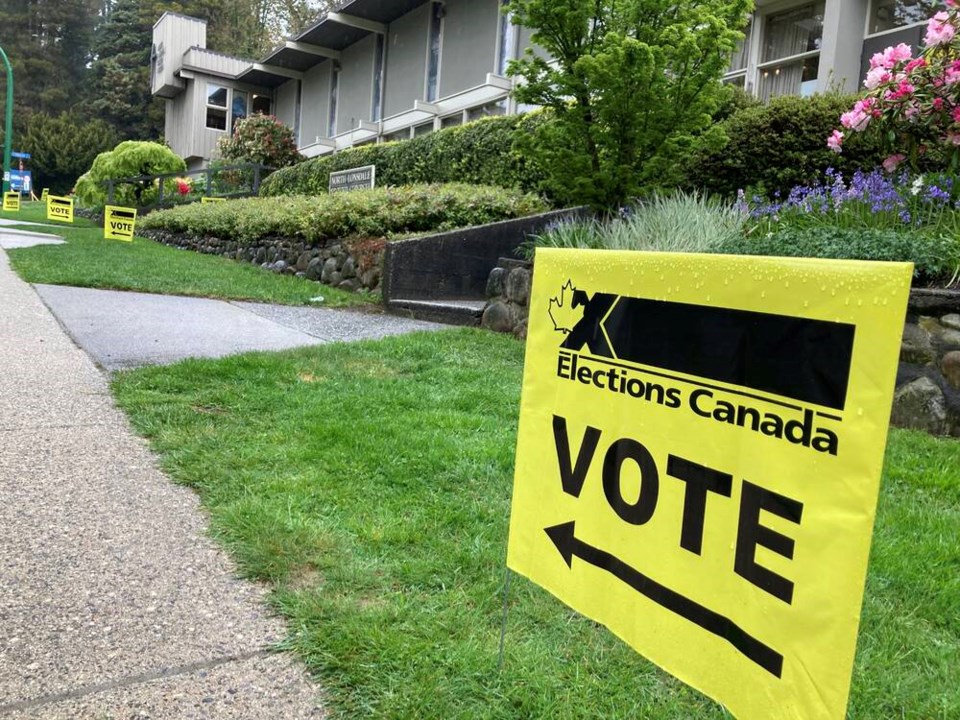Voters in the North Shore’s three ridings had a combined turnout rate of 71.55 per cent for the 2025 federal election – slightly ahead of the national average of 68.65 per cent, according to Elections Canada.
The three North Shore ridings had uncannily similar turnout numbers: 71.72 per cent in North Vancouver-Capilano, 71.17 per cent in West Vancouver-Sunshine Coast-Sea to Sky Country and 71.9 per cent in Burnaby North-Seymour. In all three ridings, the Liberal incumbents were re-elected with remarkably similar shares of the popular vote 59.8 per cent, 59.8 per cent and 59 per cent, respectively.
Nationally, 2025’s election had the highest turnout since 1993’s 69.6 per cent.
UBC political scientist Stewart Prest said academics and pundits had been watching for 2025’s voter turnout numbers with great interest.
“We were anticipating a tick up in the turnout, just because this was an election with high stakes,” he said. “And we did see an increase over 2021 numbers and yet we didn’t really see, I think, as much of an upturn as we were expecting.… Compared with the heyday of the 1980s and earlier, we’re not really seeing the same kind of turnout. It’s been declining consecutively over time.”
Political scientists and pundits have some theories as to what’s driving voter turnout numbers lower, Prest said.
Since the post-war years, voting has been seen less as a civic duty and more as a choice, he said, and in some demographics more than others.
“It seems clear that voters, over time, have come to think about voting differently, and this is particularly true among younger Canadians,” he said. “When something is a choice, people are more likely to choose not to pay attention.”
Rightly or wrongly, Prest said there is a perception among some that their votes won’t make a difference and so they tune out, he said. The trouble with that is it becomes something of a self-fulfilling prophecy. Politicians and parties tailor their platforms and messaging to demographics that are most likely to show up on Election Day at the expense of others.
“It is a problem.… If you don’t vote, then your vote definitely didn’t matter,” he said. “It is one of the reasons why we do see a great deal of attention paid to the issues that matter most to older Canadians, because it’s a much more reliable voting demographic.”
Others point the blame at Canada’s first-past-the-post electoral system, which, more or less, disregards every ballot cast in a riding that did not go toward the winner. Electoral reforms that result in some variation of proportional representation would mean no one would feel their vote was “wasted” simply because it wasn’t for the winning candidate.
Different electoral systems have their trade-offs, Prest acknowledged, but with six minority governments in the last eight elections, first-past-the-post is not delivering the stable majorities that are supposed to be one of the system’s key benefits.
“I’m always of the belief that we can always change our systems and try new things. We don’t need to be allergic to reform,” he said. “We’re getting all the downsides of first-past-the-post without the upside of a clear majority government.”
[email protected]
twitter.com/brentrichter
brentrichter.bsky.social
Want to stay updated on North Vancouver and West Vancouver news? Sign up for our free daily newsletter.



